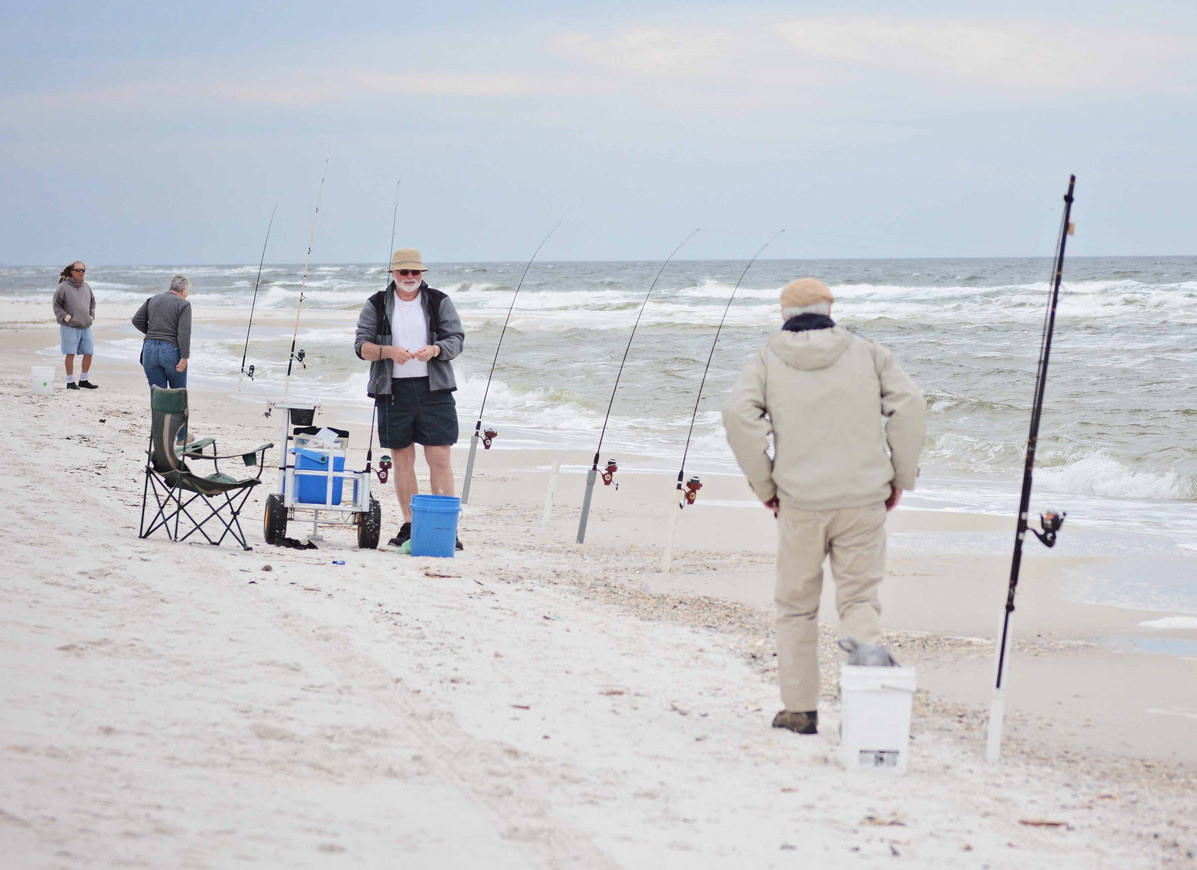During the winter months, anglers on the central Gulf of Mexico can reel in redfish, black drum, pompano and sheepshead. While the fishing can be good in winter, we ask that you use an eco-friendly approach when casting your line.
First, check local rules for fish sizes and bag regulations. In Alabama, you need a license to fish, too, so be sure you’re going by the book.
Next, choose your tackle wisely. Use barbless hooks to reduce the amount of handling to retrieve your fish. Remember to use a circle hook if you catch and release. Lots of folks love a good fight when reeling in a prize fish, but that causes exhaustion and makes the fish vulnerable to injury and to predators. Handle fish with care to minimize stress and harm.
Third, be sure to take all your gear with you. Derelict gear is the number-one cause of habitat destruction through a phenomenon known as “ghost fishing.” Left-behind line, hooks and lures can hook fish, causing them to be trapped. But fish are not the only victims. Sea turtles, as well as birds that dive into water for food, can also get tangled in line or get hooked.
Crab traps left behind in the water, but not checked frequently, can also cause problems. Those openings allow sea life to get trapped. An unchecked crab pot in Georgia was recently found with 130 deceased turtles.
Fourth, don’t leave behind bycatch. It’s a wasteful and unnecessary practice. If you toss a cast net and catch small fish or minnows you don’t want, toss them back in the water instead of leaving them on the beach to die.
Enjoy our great fishing on the Alabama coast, but please be responsible while doing so to keep our fisheries sustainable.



Leave A Comment